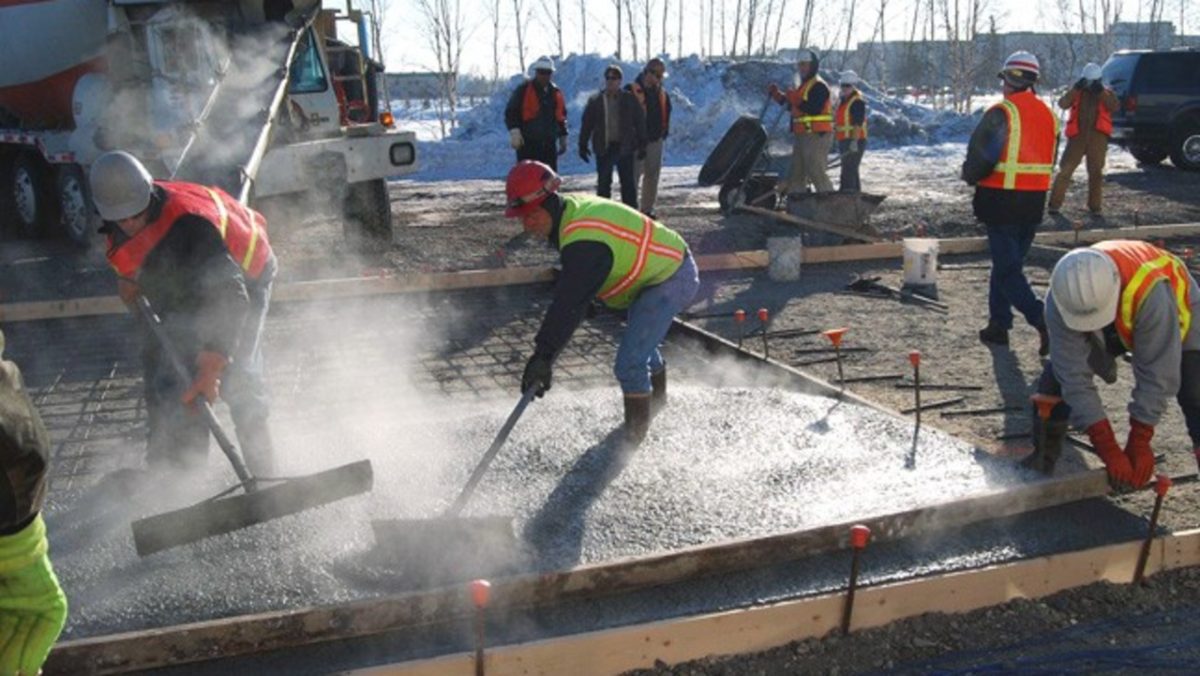
Icy weather’s effects on concrete is covered in
detail in The Concrete Institute’s SCT30
“Concrete Technology” training – an intensive five-day course that deals with,
among many other subjects, the special techniques required for cold weather
concreting.
John Roxburgh, senior lecturer at TCI’s School of
Concrete Technology, says special techniques required for winter concreting
include optimising the mix design, methods of heating up the concrete, thermal
curing and the use of concrete maturity measurements.
“Dealing with extreme temperature is fundamental to
good concrete practice on site. Cold weather concreting is often defined as the
placing of concrete at temperatures below 50F and in the South African there
are many areas that will have ambient temperatures around or below 50F –
especially early in the mornings, late afternoons and evenings.”
Roxburgh says in cold weather
several potential problems may occur:
The binder will hydrate at a slower rate leading to
concrete taking longer to set and gain strength which has the knock-on effect
of longer bleed times and difficulties in finishing, as well as later stripping
times;
There is also a chance of the concrete freezing
with the associated damaged caused by the expansion of ice within the
concrete.
Thermal cracking in mass pours may also be harder
to prevent with high temperature differentials between the hotter core concrete
and the outer concrete in contact with the low external ambient temperatures.
“However, there are some basic and simple steps to
take for concrete work in cold weather. The first is to always try and
cast the concrete on a rising thermometer: rather cast in the early morning
with the ambient temperature increasing as this would give the concrete more
time to gain strength before it potentially freezes.
Try and use slightly ‘richer’ mixes by either
adding more cement to the mix or reducing the extender content in the
cement. The use wooden formwork to help insulate the concrete or placing
industrial insulating blankets and mats over the concrete will also help.
The concreting works could also be done in a tent.
“All these measures are reasonably easy to
implement and will help tremendously in protecting concrete but there are more
sophisticated and integral techniques that can be used in cold weather
concreting to prevent costly setbacks – and these are covered in the SCT30
course offered by the School of Concrete Technology,” Roxburgh adds.
The TCI School is the oldest and largest provider
of concrete technology education in South Africa and has a wide range of
courses that cater for all levels of competency.
For more details about the SCT30 course as well as all the other 2019 courses planned in Midrand, Cape Town and Durban by the School of Concrete Technology this year, phone 011 315 0300 or email [email protected] or visit www.theconcreteinstitute.org.za. https://www.engineeringnews.co.za/article/special-training-for-concrete-work-in-winter-2019-08-07
More news
- CELEBRATING EXCELLENCE IN THE RESIDENTIAL PROPERTY SECTOR
- PART 4: GIBS PANEL DISCUSSES INTEMEDIATE CITIES ROLE IN AFRICA’S DEVELOPMENT
- EXPOSED AGGREGATE PAVERS COMPLEMENT NEW LIFESTYLE CENTRE
- GIBS PANEL EXPLORES ROLE OF INTERMEDIATE CITIES IN SA’S DEVELOPMENT PART 3
- CITI-CON’S CONCRETE KNOWLEDGE SUCCESSFULLY DEPLOYED ON NEW LANDMARK DEVELOPMENT

